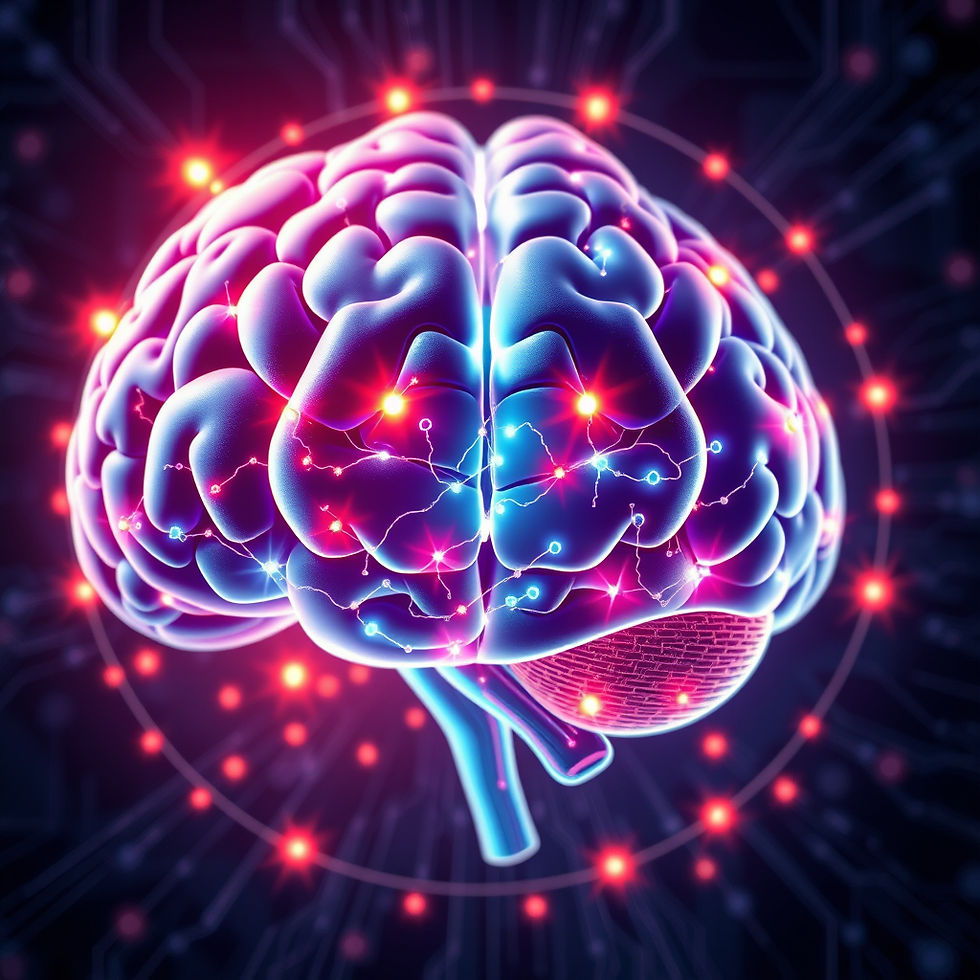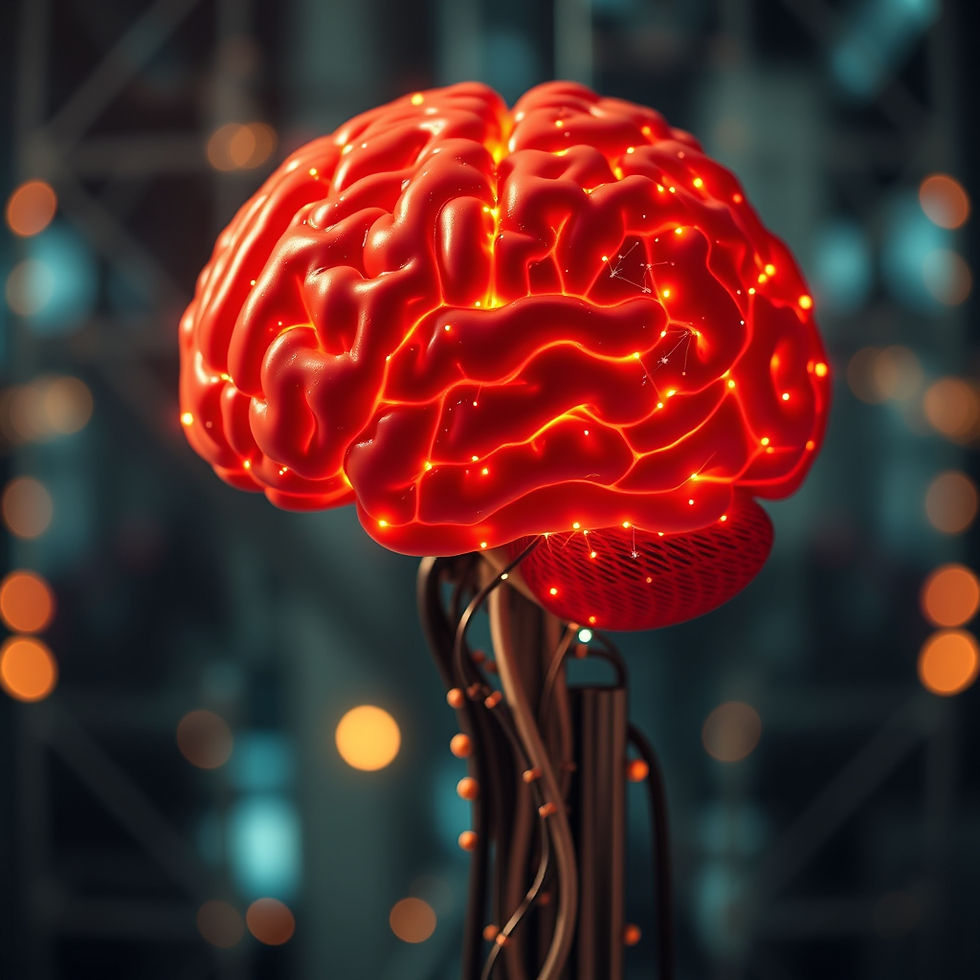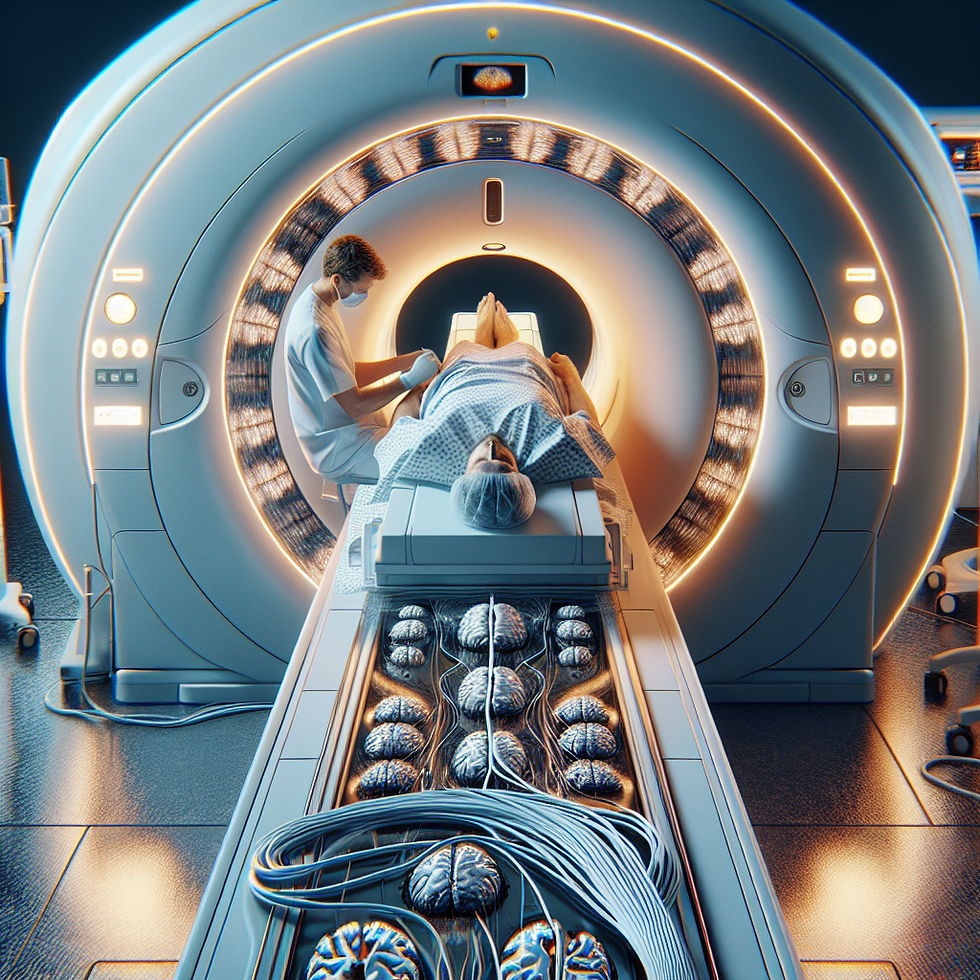Breakthrough in Brain Health Technology
- Holly Wild

- Feb 15, 2024
- 2 min read
Updated: Sep 22, 2025
Technologies That Enhance Brain Health After TBI
A traumatic brain injury (TBI) can have lasting effects on memory, attention, mood, and overall quality of life. To properly evaluate and treat these complex challenges, neurologists rely on advanced technologies that go far beyond traditional exams.

At TBI Center of New York, we use a comprehensive set of diagnostic and therapeutic tools designed to uncover hidden damage, guide treatment, and support recovery.
Key Technologies Supporting Brain Health
1. MRI and Advanced Imaging
Magnetic Resonance Imaging (MRI), including specialized sequences such as FLAIR, SWI, and DTI, reveals structural changes and micro-injuries that standard scans may miss. These images provide clear evidence for both medical care and legal documentation.
2. CT and CT Perfusion Scans
CT scans remain critical for detecting fractures, bleeds, and acute trauma. Perfusion studies add insights into blood flow and oxygen delivery, highlighting areas of the brain under stress.
3. EEG and qEEG Brain Mapping
Electroencephalography (EEG) and quantitative EEG (qEEG) measure brainwave activity, identifying disruptions linked to cognitive dysfunction, headaches, or sleep issues. These findings often guide rehabilitation and treatment planning.
4. Neuropsychological Testing
Standardized cognitive assessments evaluate memory, processing speed, problem-solving, and emotional regulation. Results provide a baseline for recovery and demonstrate the real-world impact of injury.
5. Vestibular and Balance Testing
Because TBI often affects balance and coordination, vestibular assessments help identify dizziness, vertigo, and fall risk, enabling targeted physical therapy.
6. Integrative Rehabilitation Tools
Beyond diagnostics, treatment may include biofeedback, guided physical therapy programs, and cognitive retraining exercises—all supported by objective data from neurological testing.
Why These Technologies Matter

Brain Health Technologies offer a piece of the puzzle.
Together, they:
Identify hidden injuries that might otherwise be overlooked
Provide measurable evidence for attorneys and insurers in personal injury cases
Guide treatment plans so neurologists can recommend the right therapies, including physical therapy, medication, or cognitive rehabilitation
Track progress over time, adjusting care as the patient recovers
A Smarter Path to Recovery

Managing the effects of a brain injury requires precision.
By combining advanced imaging, brainwave analysis, cognitive testing, and rehabilitative tools, TBI Center of New York ensures that treatment decisions are based on objective data and tailored to each individual.
With the right technologies, TBI survivors of car accidents, TBI workplace accidents, or TBI slip-and-fall injuries can move toward recovery with confidence—and with medical evidence that supports their journey every step of the way.
Brain Diagnosis TBI Scan - Diagnostic Testing NYC
X-ray, MRI, CT, and PET imaging, diagnosis of brain, skull, and spinal cord injuries.
Call Or Text Us Now:










Comments